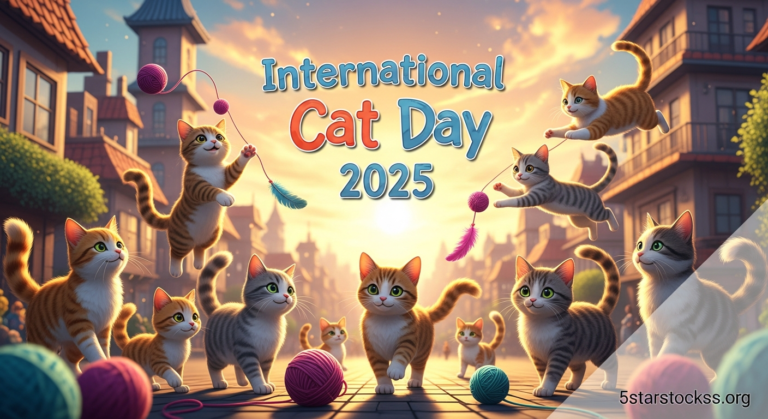The digital whispers are impossible to ignore. In the shadowy corners of the internet, where elite networks and ambitious dreams collide, a single question echoes: is The Human Gathering fake? This enigmatic organization, promising authentic connections among the world’s most influential leaders, has become a modern legend. Its very existence is a subject of intense debate, fueling both fascination and deep suspicion. We are embarking on an investigation to separate the orchestrated rumors from the documented facts, finally unveiling the truth behind this century’s most intriguing social puzzle.
The allure of a secret society for today’s pioneers is a powerful narrative. It taps into our collective curiosity about where true power and innovation reside. Yet, this secrecy is a double-edged sword, creating an aura of exclusivity while simultaneously breeding distrust. The central controversy, the question of a human gathering fake phenomenon, demands a clear-eyed examination of the evidence from all sides to reach a definitive conclusion.
What is The Human Gathering? Separating Fact from Fiction
Publicly, The Human Gathering presents itself as a meticulously curated community designed to foster genuine relationships among high-impact individuals from diverse fields like technology, philanthropy, and the arts. It is not a traditional conference but rather an immersive experience, emphasizing depth over breadth. The stated mission revolves around moving beyond transactional networking to facilitate collaborations that address complex global challenges, creating a private forum for candid dialogue away from the public eye.
This foundational principle of radical privacy is what initially fuels the speculation. In an era of digital oversharing, an organization that actively resists public scrutiny naturally raises eyebrows. The absence of a public member list, detailed agendas, or a robust digital footprint makes it an elusive target for verification. This very discretion, essential to its brand promise, becomes the primary kindling for allegations of a potential human gathering fake scenario, leaving the outside world to wonder what truly happens behind closed doors.
The Case for Fake: Deconstructing the Allegations
A significant portion of the skepticism stems from perceptions of elitism and exclusivity. Critics argue that any gathering requiring such a stringent, secretive vetting process is inherently contrived, prioritizing status over substance. The notion that genuine human connection can only occur within a gated community of elites strikes many as contradictory, suggesting a social hierarchy rather than a fellowship of equals. This perception paints the event as an exclusive club, not the transformative experience it claims to be.
Furthermore, the digital landscape is littered with dangerous impostors. Numerous professionals have reported receiving sophisticated phishing emails and fake invitations, falsely using The Human Gathering name to steal personal data or money. These scams, as highlighted on platforms like ResearchGate, tangibly damage the legitimacy of the real organization. When combined with anonymous online accounts describing interactions that felt forced or insincere, a compelling narrative forms, suggesting the entire concept might be an elaborate and hollow facade.
The Case for Real: Evidence of a Legitimate Network
Despite the rumors, tangible evidence points to the existence of a legitimate organization. Credible press outlets, including features in PAPER Magazine, have documented the gathering, quoting its organizers and detailing its ambitions. These journalistic pieces provide a crucial layer of third-party validation. Within these reports, organizers directly address the skepticism, explaining their discrete nature as a necessary condition for fostering the vulnerability and trust required for meaningful collaboration.
The argument for privacy in high-stakes networking is also persuasive. Just as corporate boardrooms or diplomatic summits operate behind closed doors, The Human Gathering posits that unfiltered dialogue among leaders cannot happen under the spotlight of social media. The stringent vetting process, often described as an exhaustive background and values check, is framed not as elitism but as quality control. This ensures a safe environment where influential figures can speak freely without fear of exposure or misinterpretation.
How to Spot a Fake Human Gathering Scam
For those curious about this elusive world, vigilance is paramount. Authentic invitations are never unsolicited and do not involve monetary transactions for entry. Key red flags include emails from generic addresses like Gmail or Yahoo, poor grammar, and requests for sensitive personal or financial information. Genuine communication would be highly personalized and come through verified, secure channels, often following an initial, trusted referral.
Protecting yourself requires a proactive approach. Always cross-reference any communication, be skeptical of too-good-to-be-true opportunities, and never click on suspicious links. Understanding that the real human gathering fake threat often comes from external scammers, not the core organization itself, is the first step in digital self-defense. Recognizing these tactics allows you to navigate the rumors and identify the probable truth.
The Deeper Question of Authenticity
The debate ultimately transcends a simple “real or not” binary and ventures into a more philosophical realm: what does “fake” even mean in this context? Is the gathering a non-existent entity, or is the critique really about its perceived value and authenticity? The term human gathering fake could be interpreted as a commentary on the perceived artificiality of the social connections it fosters, questioning whether any curated event can truly manufacture genuine human bonds.
This reflects a broader societal skepticism toward elite institutions. The value of the experience is inherently subjective, existing on a spectrum. For some attendees, the connections made may be profoundly real and impactful. For outside observers, the entire model may appear as a performative exercise in networking. The label of a human gathering fake event is often a projection of our own beliefs about power, privilege, and the possibility of authentic connection in a curated world.
Conclusion: The Final Verdict
After weighing the evidence, a final verdict emerges. The Human Gathering is not a certified scam in the literal sense; it is a real organization, as corroborated by credible journalism and its own private operations. However, its commitment to secrecy creates a vacuum that is eagerly filled by misinformation and malicious scams. Therefore, the most accurate conclusion is that while The Human Gathering itself is a legitimate entity, its brand is perpetually shadowed by a human gathering fake narrative it helped create through its own design.
The enduring mystery of The Human Gathering speaks to a fundamental human desire for meaningful connection in an increasingly digital world. Its story is a modern parable about the tension between privacy and transparency, between exclusivity and community. The truth is that the organization is real, but its ultimate value and authenticity remain in the eye of the beholder, a secret kept not by its members, but by the nature of perception itself.
FAQs: Your Questions About The Human Gathering, Answered
How can I get a real invitation to The Human Gathering?
Authentic invitations are exclusively extended through a private, referral-based vetting process. There is no public application. You cannot buy or request an invitation. Be extremely wary of anyone offering a guaranteed invitation in exchange for money or personal data, as this is a definitive scam.
What is the main goal of The Human Gathering?
The stated goal is to foster deep, authentic relationships among a curated group of global leaders, movers, and shakers. It aims to move beyond superficial networking to facilitate collaborations and conversations that can lead to innovative solutions for complex global challenges across various industries and sectors.
Why is there so little public information about it online?
The discretion is a deliberate and core part of its operational strategy. This privacy is designed to protect the identities of its high-profile attendees and to ensure the confidentiality of the discussions, allowing for more candid and vulnerable conversations than would be possible in a public forum.
What should I do if I receive a suspicious invitation?
Do not click on any links, download attachments, or provide any personal or financial information. You should mark the email as phishing or spam and delete it immediately. Report the sender if possible. Remember, a genuine invitation would never arrive unsolicited from an unverified source.




